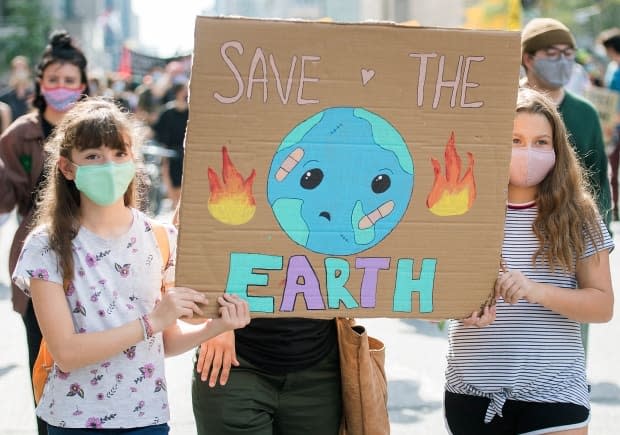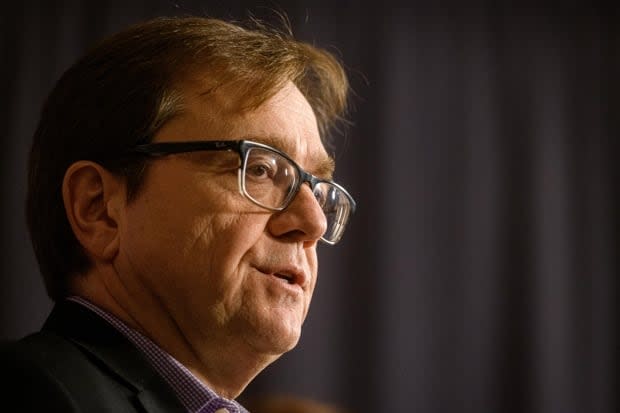Ottawa submits new greenhouse gas targets to UN, plans changes to carbon-pricing 'benchmark'

The federal government officially submitted Canada's new greenhouse gas emissions target to the United Nations this morning, formally committing the country to reducing emissions by 40 to 45 per cent below 2005 levels by 2030.
Meanwhile, Environment Minister Jonathan Wilkinson has written to his provincial counterparts to say he plans to amend the federal carbon-pricing benchmark to eliminate some of the discrepancies and exemptions that have emerged as provinces implemented their own policies over the last few years.
"As we discussed, and as our respective officials have discussed over the past several months, Canada has committed to updating its approach to carbon pricing to make it more fair and rigorous," Wilkinson said in the letter sent to provincial ministers today.
In an interview, Wilkinson said the federal government is willing to work "collaboratively" with the provinces but he doesn't expect support for the changes to be unanimous.

Canada's submission to the UN — formally known as the Nationally Determined Contribution (NDC) — confirms a target that was first announced in April when Canadian officials participated in an international climate summit convened by the United States.
According to the NDC, that target would mean cutting Canada's total emissions to between 401 and 438 megatonnes by 2030. In 2018, the last year for which information is available, Canada accounted for 729 Mt of emissions.
The Liberal government says that when current and recently announced policies are taken into account, emissions are on track to fall to 468 Mt by 2030 — a decline of 36 per cent below 2005 levels.
Six months to come up with a plan
Under the terms of the recently enacted Net-Zero Emissions Accountability Act, Wilkinson has six months to present a plan to meet the new target.
In the meantime, Wilkinson is looking to make changes to the federal carbon-pricing benchmark, which sets out the minimum standards provinces must meet when they implement their own fuel charge for consumers or an industrial system for large emitters.
A recent report from the Institute for Climate Choices, commissioned by the federal government, said that design choices and exemptions at the provincial level have led to differences in coverage and price across the country.
In the interests of making emissions reductions efficient and fair, the report's authors said, federal, provincial and territorial ministers should "should work towards developing a common standard of emissions coverage for carbon pricing" — and "point-of-sale rebates" on fuel should be eliminated.
Levelling the field
"If you look at the price on pollution, it accounts for about a third of the [total] reductions that we have identified, but it only does so if, in fact, systems are structured in such a way that they drive incremental reductions and that they are relatively similar across provinces and territories," Wilkinson told CBC News.
The new benchmark would come into effect for 2023.
In his letter, Wilkinson said provincial policies will have to cover the same proportion of emissions that would be covered by the federal backstop and that measures to prevent "carbon leakage" — businesses relocating production to countries with lower emissions standards — will be restricted to sectors that require it.
Governments will not be allowed to "weaken the price signal" with rebates or reductions in other gas taxes, Wilkinson wrote. In two provinces — New Brunswick and Prince Edward Island — carbon taxes on fuel were partially offset by corresponding cuts to the provincial gas tax.
New requirements would also be applied to the purchase of carbon offsets, Wilkinson said in his letter.

